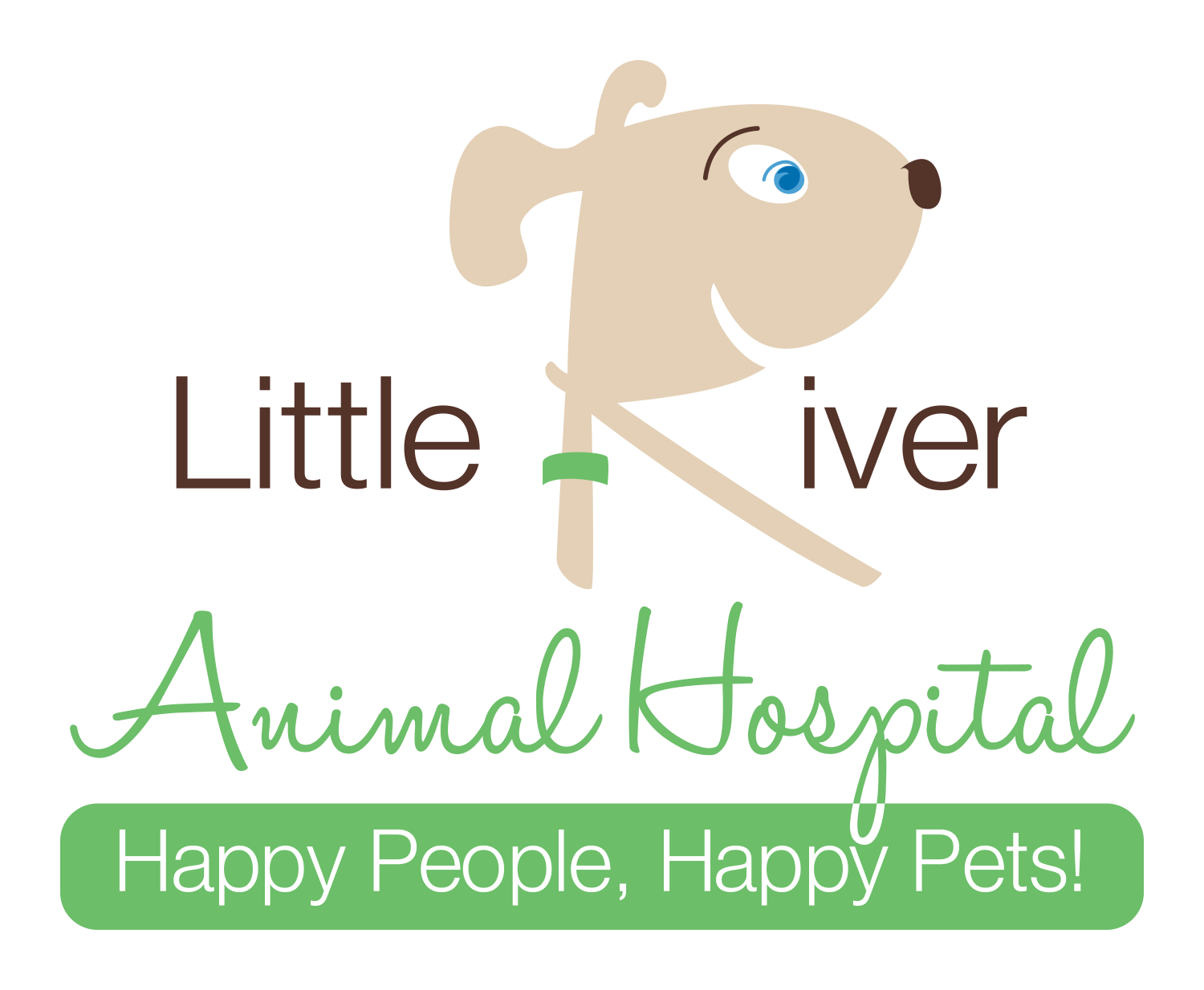
Orthopedics
Orthopedic Conditions in Pets
If your pet has recently started experiencing pain or has chronic pain, it could result from a variety of orthopedic conditions. Acute injuries in younger dogs are often due to damage to bones, ligaments and soft tissues. Older dogs can suffer from degenerative changes or arthritis that can make movement more painful. Whether these orthopedic issues result from age, breed, or injury, they can impact your pet’s overall quality of life.
Little River Animal Hospital can develop a treatment plan to help support your pet’s needs using a wide range of treatment therapies. We offer comprehensive diagnostics to diagnose your pet. We also offer Acupuncture, Laser Treatment, and Monoclonal Antibody (mAb) therapy for dogs with osteoarthritis. An Orthopedic procedure may be necessary to help minimize your pet’s pain and regain mobility. Our orthopedic surgery team will work with you and your pet to determine which surgery option is most beneficial for your pet and their needs.
Our Veterinary Orthopedic Surgery Services
At Little River Animal Hospital, we understand each pet has different needs for treating and relieving pain. Our orthopedic surgeons and veterinarians will communicate with you and examine your pet to fully diagnose their orthopedic problems while answering any questions you may have about the upcoming surgical procedures. We offer the following orthopedic services at our clinic:
Cruciate Ligament Injury Repair
Tearing the cranial cruciate ligament is one of the most common orthopedic injuries in dogs. Unlike cruciate ligament injuries in humans (ACL tears), cruciate injuries in dogs are often due to a combination of factors. Degenerative changes in the actual cruciate ligament and excessive slope to the top of the shin bone or tibia contribute to cruciate ligament rupture. The cruciate ligament provides stability to the dog’s knee. When it tears, this instability causes pain and subsequent arthritis formation.
Your pet may have a torn cranial cruciate ligament if they have one of these common symptoms:
- Obvious pain or limping
- Stiffness or difficulty rising in the hind legs
- Clicking sounds when they walk
- Not using a leg after activities
Since a cranial cruciate ligament injury will not heal with medication or rest, your pet must undergo surgery to stabilize the knee joint. Without surgery, dogs will develop severe arthritis in their knees negatively impacting their quality of life. Our expert team has years of experience performing cruciate repair surgery and will explain the entire process to ensure you feel comfortable and confident moving forward.
Patella Repair
Many small breed dogs are susceptible to patella luxation or dislocation, but occasionally larger dogs have patella luxations as well. When the patella becomes dislocated, you may notice signs like:
- Visible pain
- Reluctance to walk
- Difficulty bearing weight on the affected leg
- Skipping a stride while walking
Patella luxation repair surgery can help your pet regain mobility and restore their quality of life.
Femoral Head Osteotomy
A femoral head osteotomy is a surgical procedure to restore pain-free mobility in dogs with severe hip disease and broken or dislocated hip joints. The hip joint is a ball and socket joint. By removing the head of the femur (thigh bone), the ball portion of the hip joint, scar tissue forms in place of the femoral head. This process allows for formation of a false joint effectively eliminating bone on bone contact which causes pain. Dogs do surprisingly well with this procedure and often return to normal activity levels.
Tibial Plateau Leveling Osteotomy
A TPLO it’s a surgical procedure commonly performed to address cranial cruciate ligament (CCL) injuries in dogs. The cranial cruciate ligament is similar to the anterior cruciate ligament (ACL) in humans and is crucial for stabilizing the knee joint. When a dog’s CCL becomes injured or torn, it can lead to instability and pain in the knee joint, eventually resulting in arthritis if left untreated. TPLO surgery aims to stabilize the knee joint by altering its biomechanics, reducing pain, and improving the dog’s quality of life.
Other orthopedic services are also available including fracture repair, amputations, and corrective osteotomies. Call Little River Animal Hospital (770) 619-1616 if you have any questions or would like to schedule a consultation.
How Does Orthopedic Surgery Work?
Orthopedic surgery for pets involves procedures that help to restore your pet’s limbs to their uninjured state and promote healing. Depending on your pet’s specific medical needs, our veterinary surgery team may use bone plates, pins or screws, nylon suture, casts or splints to achieve their orthopedic surgery goals. Radiographs are performed in advance, and often require light sedation to accommodate the appropriate views. This allows for pre-operative surgical planning.
Before, during and after surgery our team utilizes the most advance techniques and medications to ensure superior pain control throughout the surgery process. Pre-operative bloodwork and a thorough examination will be necessary before the day of surgery.
What to Expect During Your Pet’s Recovery Period
After their procedure, your pet will require time to recover in the hospital and additional care at home. Our surgery team will discuss post-operative care to ensure you understand how to help your pet on their road to recovery. If there are any concerns about your pet’s health post-surgery, they may remain at our facility for a few days. This period ensures they are comfortable and fully recovered from their operation.
Your pet will need to rest after surgery, and they are likely to be groggy and confused as the anesthesia wears off. You will also need to ensure your pet is not too active, which may impact the healing process. Administer all prescribed medications as directed during the recovery period and monitor the incision for redness swelling or discharge. If your pet experiences any complications, make sure to call our office immediately so we can help your pet recover and feel their best as soon as possible.
What Are the Benefits of Orthopedic Surgery for Your Pet?
Orthopedic surgery effectively improves mobility, reduces pain and improves your pet’s overall quality of life. Some additional benefits of orthopedic surgery are:
- Orthopedic surgery serves as a curative treatment for many bone and joint problems to prevent arthritis and maximize ease of movement.
- Undergoing an orthopedic procedure can improve your pet’s overall mobility and helps them get better faster.
- Orthopedic surgeries aim to prevent complications that may arise if your pet’s condition remains untreated.
- Since no two situations are the same, your pet’s lifestyle and specific needs will be thoroughly assessed and discussed prior to surgery.
Schedule an Appointment for Your Pet at Little River Animal Hospital
Help your pet restore and improve their quality of life with orthopedic surgery services from Little River Animal Hospital. Our world-class services will ensure your pet receives the expert care they need. What’s more, we are more than happy to walk you through the entire process, so you feel confident about your pet’s care plan.
Are you looking for veterinary orthopedic surgery in Georgia? Contact the team at Little River Animal Hospital today to learn more about our orthopedic surgery services or schedule an appointment for your pet.
